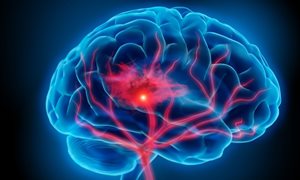11 March 2020
In Europe, 10-15% of children and adults or 50 to 75 million individuals are affected by neurodevelopmental disorders (NDDs), such as autism spectrum disorder (ASD), attention-deficit hyperactivity disorder (ADHD), intellectual disability (ID), motor problems and language disorders.
It is not hard to imagine that one NDD alone can have a serious impact on a person’s life. What makes the situation for the patient even worse is the fact that several NDDs often occur together and on top of that, go along with other somatic illnesses, such as epilepsy, (auto-)immune and gastrointestinal diseases, motor problems, and visual and auditory handicaps, whereby epilepsy is the most common co-occurring illness. This co-morbidity significantly affects a person’s length and quality of life and there are no effective treatments to date. The reason why some patients develop serious co-morbidities to the already existing NDD and others not, is still unclear.
This is where the EU-funded project CANDY (Comorbid Analysis of Neurodevelopmental Disorders and epilepsy) sets in. Recent insights into the mechanisms underpinning NDDs offer new opportunities to create a breakthrough. There is compelling evidence that many rare genetic variants increasing the risk for ASD, ADHD, and ID are shared and converge on relatively few final common pathways. Another important key role is likely played by immune dysregulation. CANDY’s innovation is to test, for the first time, if NDDs and their common mental and somatic multimorbidity, are caused by a combination of common and rare genetic variants and immune activation acting at different ‘sensitive periods’. Early maternal immune activation, in particular, is a shared environmental risk factor across NDDs, and this effect varies as a function of interactions between genetic and other environmental factors, such as nutrition and stress.
“Since we are able to map the entire human genome today, we have made tremendous progress in understanding the genetic basis of many diseases. However, there is never a one-to-one link between a single gene and a single illness”, says project coordinator Prof. Jan Buitelaar of Radboud University Medical Center. “By looking at the mechanisms underpinning NDDs it is our aim to understand better the cause of co-morbidity of neurodevelopmental and somatic illnesses and to ultimately, find new strategies for prevention and treatment for affected patients.”
The multidisciplinary team of world leading academics, patient organizations and SMEs will cost-effectively leverage existing EU-funded studies (e.g. EU-AIMS, AIMS-2-TRIALS) to elucidate the mechanisms that underlie ASD, ADHD, ID, epilepsy and other somatic comorbidities, develop new strategies for prevention and treatment, deliver novel biomarkers for early diagnosis, stratification and monitoring and open-up new avenues for research in ASD, ADHD, ID, and epilepsy. Prof. Jan Buitelaar, coordinator of CANDY, concludes: “Together we will transform the landscape for people with NDDs and make possible personalized medicine approaches that target particular mechanisms, in specific subgroups of individuals and at different life stages.”
Sixteen partners of six EU-countries and Switzerland are closely collaborating in this international research programme, coordinated by Radboud University Medical Center in the Netherlands. The academic project partners are King’s College London (UK), Institut Pasteur (France), Universität Basel (Switzerland), Rijksuniversiteit Groningen (Netherlands), Universiteit Gent (Belgium), Karolinska Institutet (Sweden), Assistance Publique – Hopitaux de Paris (France), INSERM (France), Universität Ulm (Germany), Commissariat a l’Energie Atomique et aux Energies Alternatives (France) and Birkbeck College – University of London (UK). The consortium is completed by two patient organisations, namely ADD information services (UK) and Autism Europe (Belgium), the Dutch SME Noldus Information Technology BV and the French project management provider ARTTIC S.A.S.
As part of the "Horizon 2020" programme, the European Commission is funding the five-year CANDY research project with a total of six million Euro under grant agreement No. 847818.

Contact
CANDY project office
candy_arttic@eurtd.com

In Europe, 10-15% of children and adults or 50 to 75 million individuals are affected by neurodevelopmental disorders (NDDs), such as autism spectrum disorder (ASD), attention-deficit hyperactivity disorder (ADHD), intellectual disability (ID), motor problems and language disorders.
It is not hard to imagine that one NDD alone can have a serious impact on a person’s life. What makes the situation for the patient even worse is the fact that several NDDs often occur together and on top of that, go along with other somatic illnesses, such as epilepsy, (auto-)immune and gastrointestinal diseases, motor problems, and visual and auditory handicaps, whereby epilepsy is the most common co-occurring illness. This co-morbidity significantly affects a person’s length and quality of life and there are no effective treatments to date. The reason why some patients develop serious co-morbidities to the already existing NDD and others not, is still unclear.
This is where the EU-funded project CANDY (Comorbid Analysis of Neurodevelopmental Disorders and epilepsy) sets in. Recent insights into the mechanisms underpinning NDDs offer new opportunities to create a breakthrough. There is compelling evidence that many rare genetic variants increasing the risk for ASD, ADHD, and ID are shared and converge on relatively few final common pathways. Another important key role is likely played by immune dysregulation. CANDY’s innovation is to test, for the first time, if NDDs and their common mental and somatic multimorbidity, are caused by a combination of common and rare genetic variants and immune activation acting at different ‘sensitive periods’. Early maternal immune activation, in particular, is a shared environmental risk factor across NDDs, and this effect varies as a function of interactions between genetic and other environmental factors, such as nutrition and stress.
“Since we are able to map the entire human genome today, we have made tremendous progress in understanding the genetic basis of many diseases. However, there is never a one-to-one link between a single gene and a single illness”, says project coordinator Prof. Jan Buitelaar of Radboud University Medical Center. “By looking at the mechanisms underpinning NDDs it is our aim to understand better the cause of co-morbidity of neurodevelopmental and somatic illnesses and to ultimately, find new strategies for prevention and treatment for affected patients.”
The multidisciplinary team of world leading academics, patient organizations and SMEs will cost-effectively leverage existing EU-funded studies (e.g. EU-AIMS, AIMS-2-TRIALS) to elucidate the mechanisms that underlie ASD, ADHD, ID, epilepsy and other somatic comorbidities, develop new strategies for prevention and treatment, deliver novel biomarkers for early diagnosis, stratification and monitoring and open-up new avenues for research in ASD, ADHD, ID, and epilepsy. Prof. Jan Buitelaar, coordinator of CANDY, concludes: “Together we will transform the landscape for people with NDDs and make possible personalized medicine approaches that target particular mechanisms, in specific subgroups of individuals and at different life stages.”
Sixteen partners of six EU-countries and Switzerland are closely collaborating in this international research programme, coordinated by Radboud University Medical Center in the Netherlands. The academic project partners are King’s College London (UK), Institut Pasteur (France), Universität Basel (Switzerland), Rijksuniversiteit Groningen (Netherlands), Universiteit Gent (Belgium), Karolinska Institutet (Sweden), Assistance Publique – Hopitaux de Paris (France), INSERM (France), Universität Ulm (Germany), Commissariat a l’Energie Atomique et aux Energies Alternatives (France) and Birkbeck College – University of London (UK). The consortium is completed by two patient organisations, namely ADD information services (UK) and Autism Europe (Belgium), the Dutch SME Noldus Information Technology BV and the French project management provider ARTTIC S.A.S.
As part of the "Horizon 2020" programme, the European Commission is funding the five-year CANDY research project with a total of six million Euro under grant agreement No. 847818.

Contact
CANDY project office
candy_arttic@eurtd.com
Related news items

Treatment of brain diseases at risk if neuroscientists can no longer conduct their research
5 August 2021 In order to treat brain diseases such as depression, Alzheimer's or ADHD, more research into the brain is needed. go to page
Three Vici grants for Radboudumc researchers
20 February 2020 Christian Beckmann, Sander Leeuwenburgh and Annette Schenck each receive a 1.5 million euro Vici research grant from NWO. go to page
DCMN big data mini-symposium held on 31 January
5 February 2020 On 31 January, DCMN researchers and collaborators gathered to talk about big data, as a means to work towards Open Science. go to page.aspx?width=206&height=130&ext=.jpg&type=BlockColumn1Zoom1)
Two DCMN researchers in top 1 percent by citations
28 November 2019 Jan Buitelaar and Christian Beckmann made it to this year’s list of highly cited researchers. Researchers in this list are selected for their exceptional research performance and are regarded to have had a major impact on fellow scientists. go to page
3 DCMN researchers among most cited scientists
10 December 2018 Christian Beckmann, Jan Buitelaar and Barbara Franke made it to this year’s list of highly cited researchers. Scientists in this list are selected for their exceptional research performance and are regarded to have had a major impact on fellow scientists. go to page
Roshan Cools and Dorien Maas nominated for VIVA400
9 October 2018In the annual VIVA400 list, Roshan Cools and Dorien Maas are nominated in the category Knappe Koppen.
go to page